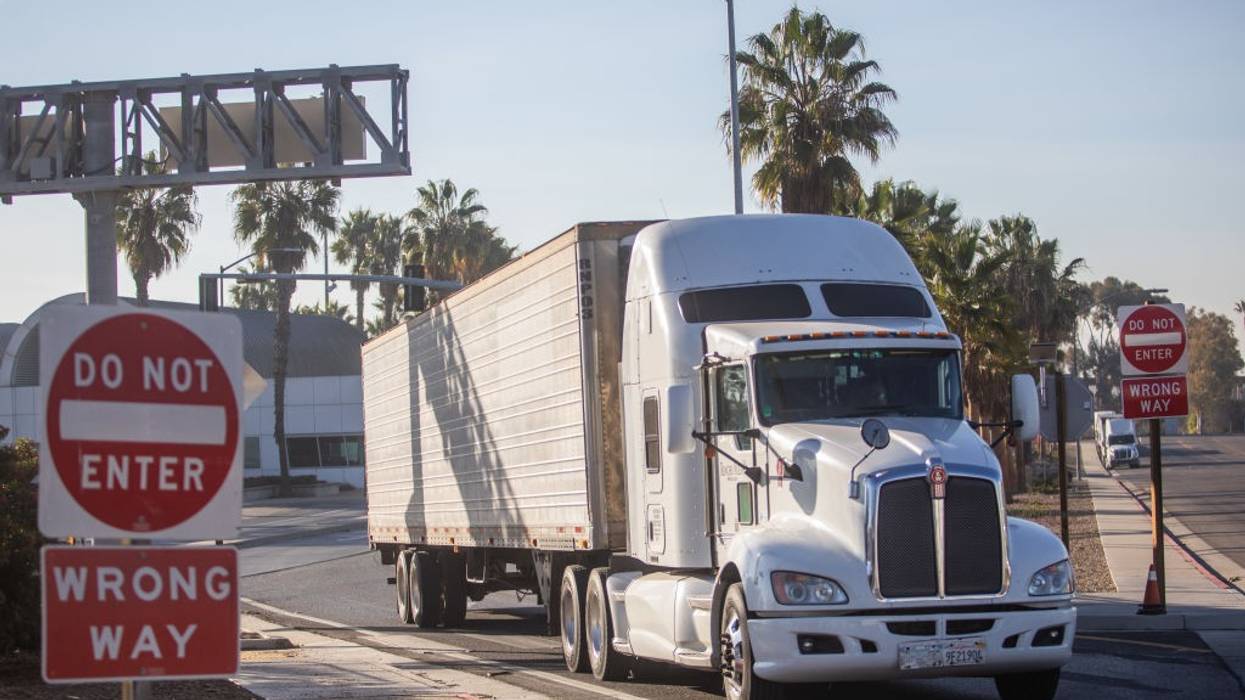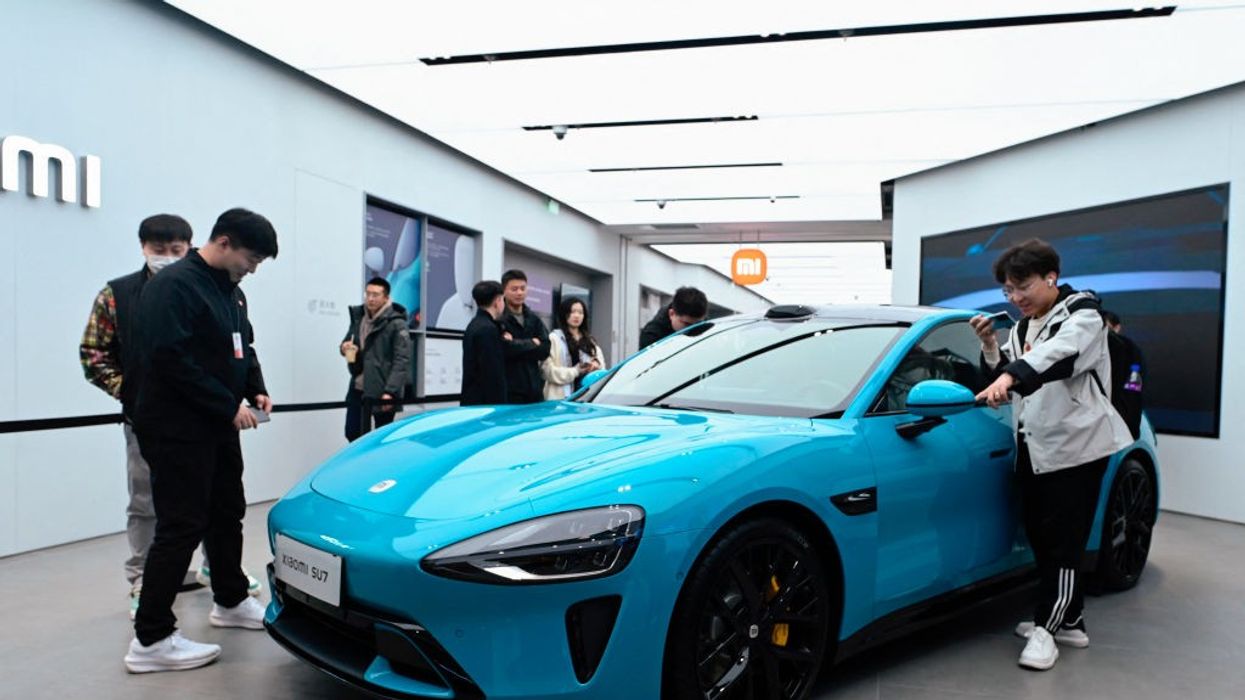Melinda St. Louis, director of Public Citizen's Global Trade Watch, agreed that "the climate crisis is too urgent for the U.S. or any country to allow outdated trade rules—written long before governments were taking climate change seriously—to distract us from enacting bold climate policies."
"Existing trade rules need to be rewritten so that trade pacts can become tools for helping the world advance towards a clean, just, and sustainable economy—but we don't have time to wait."
China—which has heavily subsidized its own electric vehicle industry—on Tuesday filed a complaint against the United States at the World Trade Organization (WTO), taking aim at rules for EV tax credits included in the Inflation Reduction Act (IRA), a sweeping package signed by President Joe Biden in 2022.
"Under the pretext of 'responding to climate change' and 'environmental protection,' the U.S. has formulated discriminatory policies through its Inflation Reduction Act regarding new energy vehicles, excluding products from China and other WTO members from subsidies," said a Chinese Ministry of Commerce spokesperson, according to a translation by the South China Morning Post.
"Such exclusions distort fair competition, disrupt global industrial and supply chains, and violate WTO principles such as national treatment and most-favored-nation treatment," added the spokesperson. "We urge the U.S. to abide by WTO rules, respect the development trend of the global new energy vehicle industry, and rectify its discriminatory policies."
U.S. Trade Representative Katherine Tai said that "we are carefully reviewing the consultation request" and called out the People's Republic of China for using "unfair, nonmarket policies and practices to undermine fair competition and pursue the dominance of the PRC's manufacturers both in the PRC and in global markets."
Tai also praised "President Biden's leadership," represented by the passage of the IRA, which she described as "a groundbreaking tool for the United States to seriously address the global climate crisis and invest in U.S. economic competitiveness." She said the U.S. would "continue to pursue major new investments in clean energy technology, from solar and wind to batteries and electric vehicles and beyond."
The Associated Press reported Tuesday that "the real-world impact of the case is uncertain. If the United States loses and appeals the ruling, China's case likely would go nowhere. That is because the WTO's Appellate Body, its supreme court, hasn't functioned since late 2019, when the U.S. blocked the appointment of new judges to the panel."
St. Louis said that "China's threatened trade attack against climate provisions in the U.S. Inflation Reduction Act is another example of why the U.S. and other nations should begin working with one another towards an immediate moratorium on the use of trade challenges against clean energy transition and other climate measures."
"We've been warning since before the passage of the Inflation Reduction Act that antiquated WTO rules would threaten our ability to realize the green transition," she noted. "Prominent labor, environmental, and consumer groups have urged the U.S. government to boldly implement the IRA as intended despite trade pact attacks—and to make a commitment not to use such trade rules to challenge other countries' climate policies."
Stamoulis pointed out that "governments worldwide are wasting considerable amounts of time and political capital attempting to squeeze potential climate measures into compliance with outdated trade and investment rules."
"Ultimately, existing trade rules need to be rewritten so that trade pacts can become tools for helping the world advance towards a clean, just, and sustainable economy—but we don't have time to wait," he continued. "A 'climate peace clause' that brings an immediate end to the ongoing trade attacks against climate measures is a necessary interim step towards helping governments transition to clean energy on the rapid timeline that is required to head off the worse possible impacts of climate change."
"A moratorium on the use of international trade agreements to challenge climate policies would: (1) help governments safeguard existing climate mitigation and transition measures by protecting them from trade challenge; (2) create the space for governments to adopt the bolder climate policies that justice and science demand without fear or threat of new trade challenges; and (3) incentivize and offer countries time to work together and resolve the underlying tensions between current trade law and the imperative for climate action," he explained.
St. Louis also called for implementing a climate peace clause to "temporarily halt cases like this one so countries can prioritize the green transition and revise the WTO rules currently creating unnecessary hurdles."
"We must move forward with IRA implementation and work to enact even bolder policies to transform our economy for a clean energy future, and support other countries that do the same," she asserted.
China's WTO complaint comes on the heels of the hottest year in human history—which concluded with a United Nations climate summit that scientists called a "tragedy for the planet" because the conference's final agreement didn't demand a phaseout of fossil fuels that are driving global heating.
Soaring temperatures have continued this year, with European Union scientists recently announcing that last month was the warmest February on record. Carlo Buentempo, director of the E.U.'s Copernicus Climate Change Service, stressed that "the climate responds to the actual concentrations of greenhouse gases in the atmosphere so, unless we manage to stabilize those, we will inevitably face new global temperature records and their consequences."



